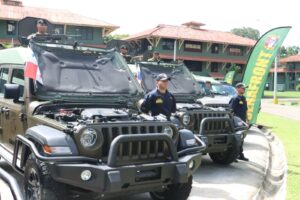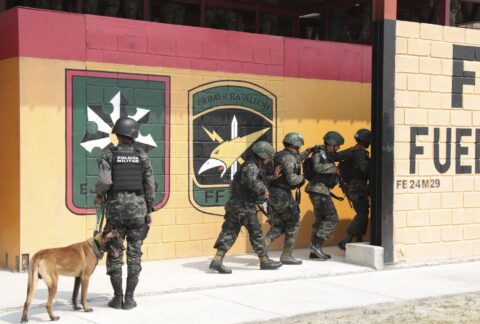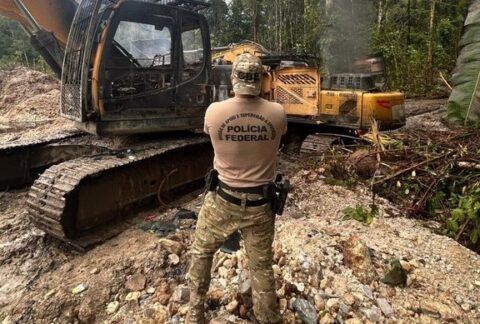So far this year, until the first half of June, Panamanian security forces have carried out 119 anti-drug operations, Panamanian Public Security Minister Juan Manuel Pino told the press. “We seized more than 27 tons of drugs, mostly cocaine, of which more than 9 tons were seized in the province of Colón,” he said.
“These advances are thanks to the collaboration of countries such as the United States, which provides direct support with equipment and training to the interdiction forces, in addition to the exchange of information with Colombia,” former Panamanian anti-drug prosecutor Patricio Candanedo told Diálogo on June 10. “At the same time, there is a flow of information and/or intelligence that is used for the seizures that take place.”
This combination of factors produced a succession of combined operations led by Panamanian law enforcement, which in April alone resulted in the capture of 23 people linked to narcotrafficking, as well as the seizure of 3,000 kilograms of illicit substances, including cocaine and marijuana, online platform Panamá en minutos reported.
“Criminal organizations’ interest in reaching Panamanian territory is largely due to its geostrategic position, being a neighbor of one of the largest drug producers, which is Colombia,” Candanedo said. “It can be said that Panama has been, is, and will continue to be one of the main destination points for drugs to be sent to Europe, Asia, and Oceania.”

International support
Successful anti-drug operations would not be possible without international support. In May, the Panamanian government received a U.S. donation of 63 military vehicles, valued at $8 million, to reinforce security on the borders with Costa Rica and Colombia, and confront narcotrafficking and human smuggling head on, the Ministry of Public Security said via Twitter.
Andrés Ormaza, a Colombian expert and director of the Program against Transnational Organized Crime of U.S.-based nonprofit organization Pan American Development Foundation, told Diálogo that Panama is not only currently facing conventional drug trafficking organizations, but also criminal groups whose illegal activities are tied to various crimes, such as human trafficking and the counterfeiting of dollars, among others.
The province of Colón is a permanent focal point in the fight against drug trafficking. “During 2022, we ended up with 128 tons of drugs at the national level, of that drug more than 60 tons were seized in Colón,” Minister Pino told Panamanian news site Prensa Latina. “In these operations, we seized speedboats, vehicles, and cash, but they cannot be transferred into the hands of the State to invest in social prevention programs for example, because we do not have a Law for Dominion Extinction.”
Extinguishing ownership, Ormaza explains, seeks to impact illicit capitals and criminal groups, directly confronting corruption. “We hope that Panama incorporates this mechanism in the fight against drug trafficking, puts behind the idea that our country is attractive to criminal organizations, and instead, improves on security issues,” he said.
“It is vital to have this tool to confront drug trafficking, terrorism, corruption, and other crimes associated with organized crime,” Minister Pino added. “There is a lot of money, a lot of illegal assets in the hands of criminals and the idea is to put an end to the financial muscle of these scourges.”
Not letting their guard down
In May, the National Police and the National Air and Naval Service (SENAN) carried out a joint operation in different areas of the provinces of Panama, Coclé, and West Panama, dismantling a drug-related criminal organization made up of Panamanians, Colombians, and Ecuadorians.
Operation Equino led to the capture of 26 criminals responsible for money laundering and drug-related crimes.
Also in May, Panamanian authorities captured 16 people accused of being part of two criminal groups hired to receive and store drugs from Colombia and then ship them in containers to the United States and Costa Rica, Panamanian newspaper La Vanguardia reported.
According to senior Narcotics Prosecutor Marta Barrios, the detainees were charged with receiving and transporting drugs from Colombia through the coordination of meetings, receipt, storage, and safeguarding of the shipments.









